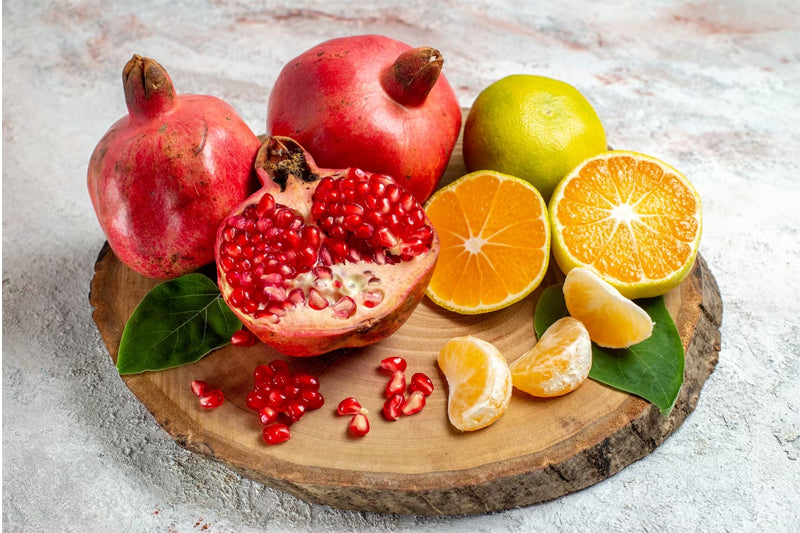In the world of health and wellness, there's a hidden hero called nitric oxide. Nitric oxide, a small molecule produced by cells lining blood vessels, offers numerous health benefits. Recent studies have revealed that certain foods can naturally boost your nitric oxide levels to enjoy the incredible advantages they offer.
The Role of Nitric Oxide in the Body
Before we get into nitric oxide-rich foods, let's understand the potency of this molecule. Nitric oxide acts as a messenger within the body, influencing various physiological processes. It plays a crucial role in relaxing blood vessels, thereby improving blood flow and supporting circulatory health. Additionally, nitric oxide supports the immune system, protects against oxidative damage, and even enhances exercise performance.
Leafy Green Vegetables: Nature's Nitric Oxide Boosters
When it comes to nitric oxide production, leafy greens are at the forefront. Spinach, kale, and arugula are packed with nitrates, which are converted into nitric oxide by the body. Adding these vibrant greens to your diet can help maintain optimal levels of nitric oxide, supporting a healthy heart and blood flow.
The Power of Beets: A Potent Source of Nitric Oxide
Beets, with their earthy flavor and vibrant color, are another incredible source of nitric oxide. Studies have shown that the high nitrate content in beets can lead to increased nitric oxide levels, promoting better circulatory health. Enjoy them in salads, juices, or roasted as a delicious side dish to reap their heart-healthy benefits.
Citrus Fruits: A Refreshing Way to Increase Nitric Oxide
Not only do citrus fruits bring a burst of tangy freshness, but they also offer a significant source of nitric oxide. Fruits like oranges, grapefruits, and lemons contain high levels of vitamin C, which supports the enzymes responsible for producing nitric oxide. Squeeze some citrus juice into your water or enjoy a fruit salad to boost your nitric oxide levels.
Pomegranates: Delicious and Nitric Oxide-Rich
Pomegranates have long been hailed for their health benefits, and their nitric oxide-boosting properties further enhance their role. Studies have shown that pomegranate salads and juice can increase nitric oxide levels, improve blood flow, and provide protection against oxidative damage. Try the sweet and tangy taste of this ruby-red fruit to support a healthy heart.
Nuts and Seeds: Tiny Nutritional Powerhouses
Nuts and seeds, such as almonds, walnuts, and flaxseeds, offer nutrients and can also help maintain healthy nitric oxide levels. These little powerhouses are rich in the amino acid L-arginine, which is a precursor to nitric oxide in the body. Sprinkle them on salads, smoothies, or in snack to nourish your heart and boost your nitric oxide levels.
Dark Chocolate: A Sweet Treat with Nitric Oxide Benefits
Eating a bit of dark chocolate can not only satisfy your sweet tooth but also contribute to increased nitric oxide levels. Dark chocolate contains flavonoids that stimulate nitric oxide production and support healthy blood vessels. Enjoy a small piece of high-quality dark chocolate as a guilt-free treat while reaping its heart-protective benefits.
Including Nitric Oxide Foods into Your Diet
Now that we've discovered these nitric oxide-rich foods, it's good to incorporate them into our routine. Start by adding a handful of leafy greens to your salads or smoothies.
Prepare colorful fruit salads with a variety of citrus fruits, and enjoy pomegranate juice as a refreshing beverage. Try a mix of nuts and seeds, and a small portion of dark chocolate when the cravings strike. By incorporating these foods, you can boost your nitric oxide levels and promote a healthier heart.
Nitric Oxide Supplements
Nitric oxide supplements offer a convenient option for individuals who may not have access to nitric oxide-rich foods consistently. Maintaining a diet high in nitric oxide can be challenging, especially for those with busy lifestyles or dietary restrictions.
Supplements allow for better control over the dosage and timing of nitric oxide intake, which is particularly beneficial for athletes or those seeking precise dosing for performance, recovery, or specific health conditions. Unlike the varying nitric oxide concentrations in food, supplements provide a reliable and accurate dose. They can also support individuals who require higher nitric oxide levels than diet.
Precautions and Considerations
Before adding nitric oxide supplements to your daily routine, it's important to be cautious and consider a few factors. Here are some things to keep in mind:
Consult a healthcare professional before starting nitric oxide supplements, especially if you have medical conditions or take medications.
Choose reputable brands that undergo testing to ensure safety and efficacy.
Be aware of potential side effects like digestive issues, headaches, and low blood pressure.
Supplements should complement a healthy diet, not replace it. Prioritize nitric oxide-rich foods for additional health benefits.
Individual responses to supplements can vary. Pay attention to your body's response and adjust supplementation accordingly.
Follow proper timing and dosage guidelines provided by the manufacturer or healthcare professional to avoid excessive intake.
Conclusion: Enhancing Your Health with Nitric Oxide-Rich Foods
By incorporating leafy greens, citrus fruits, pomegranates, nuts, seeds, and dark chocolate into our diets, we can naturally increase our nitric oxide levels, supporting heart health, improving blood flow, and enhancing athletic performance. So, let's enjoy these delicious and nutritious options and unlock the power of nitric oxide for a healthier, happier life.






